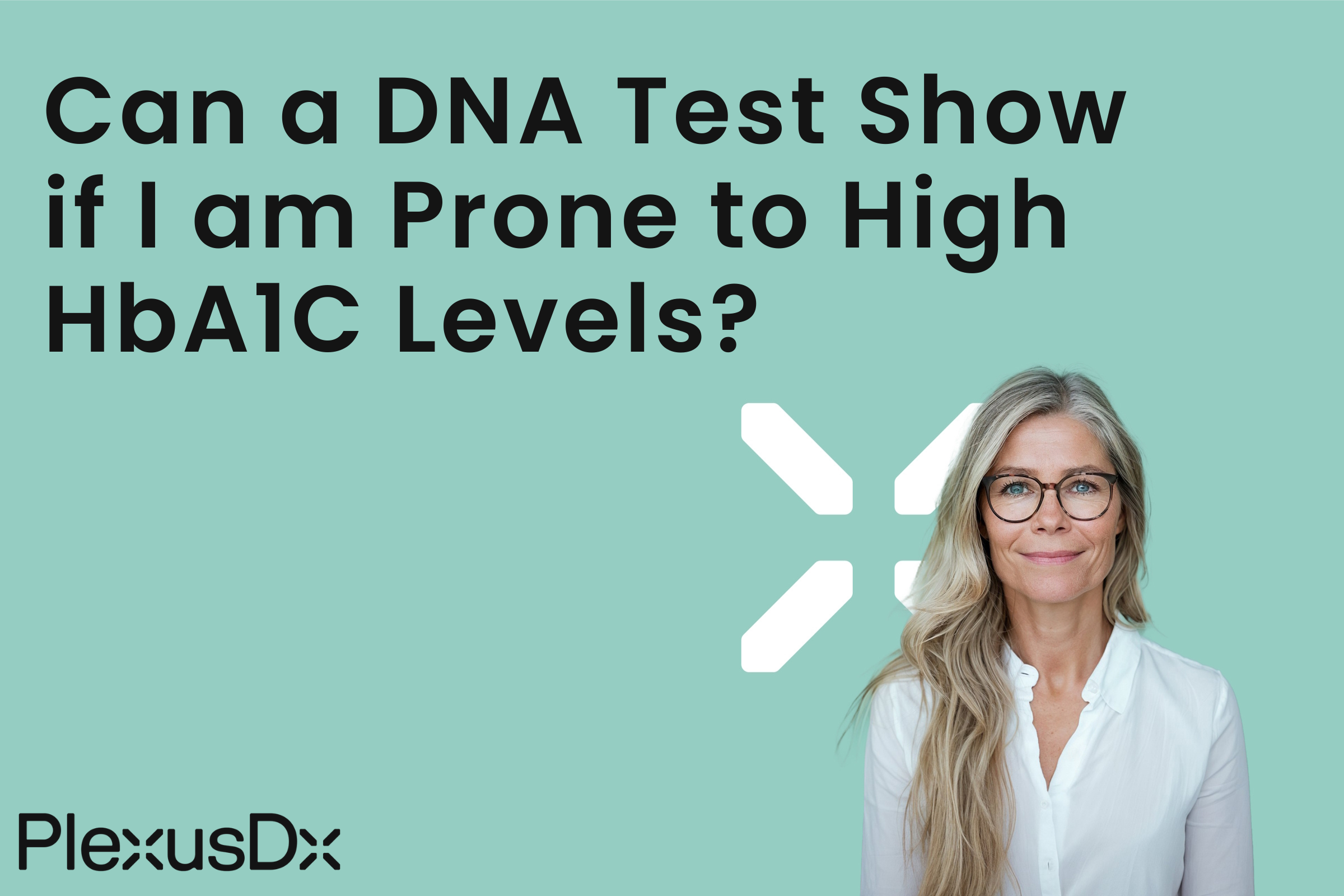Is it possible to determine genetic susceptibility to high HbA1c levels through DNA testing?
Do you think your genetic makeup can show your likelihood of having elevated HbA1c levels? Numerous people are actively seeking information to better understand their health through this important question. A DNA test offers essential information about your genetic risk factors for different health conditions including those which might result in increased HbA1c levels. This blog post guides you through how DNA testing provides risk factor insights and proactive health management strategies.
Understanding HbA1c and Its Importance
We need to understand HbA1c before discussing DNA testing specifics as it plays a vital role in health monitoring. HbA1c represents a type of hemoglobin that forms when glucose binds chemically to it. Testing HbA1c levels helps healthcare professionals understand your average blood sugar levels over the previous two to three months. Elevated HbA1c levels serve as an indicator for a higher probability of developing diabetes and various metabolic disorders.
Our genetic makeup influences how our bodies regulate glucose processing and manage insulin production. Your genetic profile includes markers that determine your risk level for insulin resistance which subsequently results in high HbA1c levels. A DNA test becomes useful by revealing your genetic predispositions.
A DNA analysis helps determine your genetic risk factors for metabolic disorders. A DNA test analyzes genes which play roles in both glucose metabolism and insulin sensitivity. Genetic variations in the TCF7L2 gene have been associated with heightened type 2 diabetes risk. Understanding your genetic makeup allows you to identify your potential risk for elevated HbA1c levels.
A methylation genetic test offers more data about the behavior of your genes. The methylation process serves as a genetic switch to activate or deactivate genes which changes how your body reacts to different lifestyle and dietary factors. Genetic predisposition to elevated HbA1c levels does not prevent lifestyle choices from being essential for health management.
Expert Insights on Genetic Testing
Healthcare professionals endorse genetic testing as an effective method to personalize health management. According to Dr. Jane Smith who specializes in genetics and metabolic health knowledge of genetic predispositions enables people to make better health decisions. Understanding your risks requires active steps towards reducing them.
Individual stories serve to demonstrate the positive outcomes of undergoing genetic testing. A DNA test revealed to one person that they carried a genetic variant which increases their risk for insulin resistance. Using their genetic information they collaborated with their healthcare provider to create personalized dietary and exercise plans which resulted in better HbA1c readings.
Practical Steps to Manage Your HbA1c Levels
Understanding how DNA tests reveal your risk for high HbA1c levels enables us to now focus on effective health management strategies.
-
Get Tested
Undergo a DNA test to gain deeper insights into your genetic predispositions. PlexusDx provides personalized genomic health reports which assist individuals in discovering potential genetic risk factors that contribute to high HbA1c levels. -
Consult with a Healthcare Provider
It is essential to review your genetic test results with a qualified healthcare provider. Healthcare providers can support you by analyzing your genetic results to create a health plan tailored to your genetic profile. -
Adopt a Healthy Lifestyle
A healthy lifestyle helps reduce HbA1c levels regardless of genetic factors. Here are some actionable tips:
- Balanced Diet: Your diet should emphasize whole foods which include abundant fruits and vegetables together with whole grains and lean proteins. Limit processed foods and sugars.
- Regular Exercise: Strive to complete 150 minutes of moderate aerobic exercise every week. Exercise helps improve insulin sensitivity.
- Monitor Your Blood Sugar: Maintain awareness of your health status through regular blood sugar monitoring.
- Manage Stress: High stress can impact blood sugar levels. Add yoga, meditation and deep breathing exercises to your daily schedule to reduce stress.
-
Stay Informed
Make sure you obtain the most recent updates about genetic testing developments and metabolic health research. Knowledge provides power because staying informed enables you to make more effective health choices.
Conclusion
Through DNA testing you can learn about your risk for high HbA1c levels which will reveal your genetic risks and enable you to manage your health more effectively. Your overall well-being improves significantly when you combine genetic information with lifestyle adjustments. Discover your path to better health by exploring the Precision Health & Wellness tests PlexusDx offers on PlexusDx.com as well as Amazon and Walmart. Knowledge of your genetic makeup represents an initial step while active steps toward change deliver real impact.
Where to Buy PlexusDx Genetic Tests
Ready to take control of your health with precision genetic insights? You can purchase the PlexusDx Glucose, Insulin and GLP-1 Genetic Test from these trusted retailers:
- 👉 PlexusDx – Order directly from our official website.
- 👉 Amazon – Convenient shopping with fast shipping.
- 👉 Walmart – Buy online from a trusted retailer.
Get your personalized DNA insights today and start optimizing your health! 🚀

Share:
Does my Genetic Profile Influence my Body’s Ability to Convert T4 to T3?
What is MTHFR Test For?